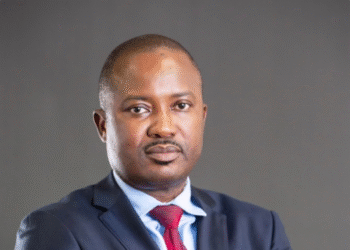Ms Abena Amoah, the Deputy Managing Director of the Ghana Stock Exchange (GSE), has recommended that Government of Ghana issues an infrastructure bond on the fixed income market to raise funds to close the existing financing gap for infrastructure projects in the Ghanaian economy.
According to GSE’s Deputy Managing Director, government can explore various opportunities on the domestic debt market to issue debt securities toward the construction of specific infrastructure projects, such as roads, in the country.
“The Ghana Fixed Income Market (GFIM) is there to facilitate the raising of long-term debt capital.
“On this market, government and corporate institutions have issued securities up to 20-year bonds, which can serve as a pricing guide for the Ghana Infrastructure Fund to come onto the market to issue bonds toward the construction of infrastructure such as roads”.
Ms Abena Amoah
Ms. Amoah made this statement during the 2021 Ghana Economic Forum under the theme ‘Strengthening Home Grown Policies to Underpin the National Digitalization Drive and Shared Financial Prosperity’.
GSE’s Deputy Managing Director, describing how government can harness the potential of raising capital from GFIM, said funds can be raised today to finance projects, and repayment can be made from revenues generated from these projects.
“So, let’s take the potential proceeds from the infrastructure which will come over the long lifespan of that project, say 20 or 30-years, and issue an infrastructure bond today that comes with a moratorium, whereby there’s no repayment principal or interest for say 2 to 3 years, and then build the roads. It is from operation of the roads that repayment will be made.”
Ms Abena Amoah
Need to explore other financing avenues
Comparing the Ghana infrastructure bond with some already issued bonds, Ms. Amoah stated that, “unlike the ESLA and Daakye bonds which are used to repay creditors, the Ghana infrastructure bond will be to specific infrastructure that goes to finance specifically identified infrastructure”.
These infrastructure bonds, Ms. Amoah disclosed, are readily and commonly available bonds in matured or maturing markets globally.
This wake-up call by the GSE, comes at the time when government is exploring new opportunities by creating an integrated framework for sustainable financing that creates enablement to issue instruments in either a use-of-proceeds format or sustainability-linked format.
As disclosed by the World Bank, Ghana’s infrastructure challenges will require raising the country’s annual expenditures to US$2.3billion.
The country already spends about US$1.2billion per year on infrastructure, equivalent to about 7.5 percent of GDP, the world bank stated.
Also, the World Bank revealed that, “Ghana’s annual infrastructure funding gap is about $0.4 billion per year, chiefly related to power and water”.
According to the International Monetary Fund (IMF), “countries lose over one-third of potential benefits from infrastructure investment due to inefficiencies. Strong infrastructure governance can reduce more than half of these inefficiencies”.
Deloitte, in an article on ‘An Alternative Source of Financing Infrastructure Projects’ stated that the “global financial crisis has resulted in stricter regulations on banks and their lending requirements which mean that infrastructure projects can no longer be funded by traditional debt alone”.
Due to this development, Deloitte urged that other innovative ways of funding, such as project bonds need to be considered and implemented.
READ ALSO: IMF Chief Economist Set to Leave Office, Return to Harvard in January 2022























